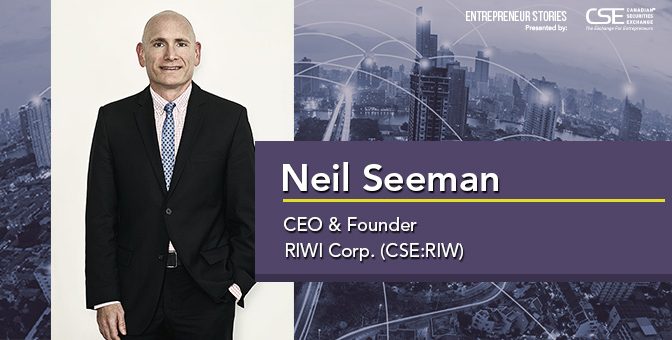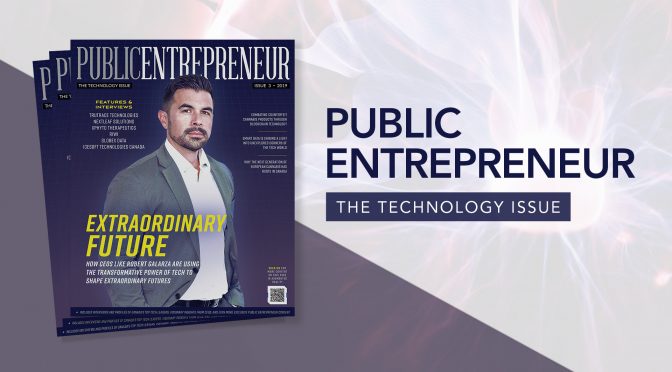RIWI Corp. (CSE:RIW) runs a business for the curious, the analytical, for governments of the world, and for financial services firms looking to develop an edge. It is a business that is never the same two days in a row and thus endlessly fascinating, with the potential to drive policy, influence strategy, and bring improvements to the world at large.
In short, the company performs global trend tracking and predictive analytics that provide previously unavailable insight into how people think and behave. Relying on the Internet, it conducts surveys and can also run ad tests assessing the efficacy of corporate marketing initiatives. The company has thus far analyzed over 1.5 billion responses in putting together reports for its clients.
RIWI’s client roster includes companies in the private sector, predominantly finance, as well as groups active in humanitarian aid such as the World Bank and the Bill and Melinda Gates Foundation. Security is another area of great importance to the company.
Public Entrepreneur caught up with Founder and Chief Executive Officer Neil Seeman recently for a discussion of RIWI’s role in today’s rapidly evolving digital landscape and a look into corners of the technology world we never even knew existed.
How has technology and the market you serve changed over the last decade or so?
The market for global data collection has really exploded in the last 10 years and we’re just at the cusp of it. I feel that we’re sort of in Web 3.0 right now. I was lucky enough to have been an investor in Web 1.0 (the early days of the commercial Web) and then Web 2.0 (the social Web). Now today with Web 3.0, where RIWI sits is the world of incalculable amounts of data, and more importantly, data for actionable insights.
It’s less about Big Data these days than it is about Smart Data and that’s where we focus. And the second titanic change, which is just occurring, and where RIWI sits at a leadership position, is the importance of being an ethical data broker and only collecting data free of personal identifiers. This is becoming a game-changing issue in the world of data collection. It’s a highly competitive marketplace but the total addressable market is pretty extraordinary.
Your technology uses machine learning. Can you explain in simple terms how you collect data?
RIWI invented a global platform such that anyone with access to a Web-enabled device can stumble into a RIWI survey or ad test as they navigate the Internet and enter an abandoned domain that doesn’t exist at that moment in time – they encounter a RIWI survey or ad test on a non-trademarked domain. We invented that and expanded our intellectual property and we continually learn which constellation of domains is able to capture a perfect mirror of the Web-using audience in any region of the world. This changes in real time and we understand why and how that happens. We have a decade of historic data so we understand the changing Internet infrastructure in every country and that is a form of intelligence that can be very valuable to understanding how we can solve client needs.
How does your technology differ from that of other companies? How do you position yourself against your peers?
It’s differentiated in a number of ways. The first is global access. We have single-button technology such that you can access eight or 180 countries, or 229 territories and countries using RIWI. Otherwise, you would have to go to online panel suppliers or different market research providers in the countries.
Secondly, we reach opaque or otherwise impossible markets. We are the only continuous data provider in terms of sentiment data and ad testing data in all cities and regions across China, for example.
Thirdly, we are random in our reach. We patented and then built out a global platform and cloud-based architecture called Random Domain Intercept Technology such that the recipients who are intercepted are random and RIWI is privacy-compliant such that we are not collecting any personally identifiable data, and this fourth aspect of RIWI is highly differentiated from other digital data collection tools.
Fifth, and most importantly, we’re being recognized for broadening the voices of people who participate in surveys and ad tests. In other forms, traditional or even modern forms of sentiment collection, whether it’s social media analytics or public opinion panel-based polling or natural language algorithms using artificial intelligence, you’re getting a very, very narrow slice of public opinion, whereas with us, the majority, and in some cases the vast majority, of the people whose opinions and behavioural reactions we collect have not answered a survey or ad test of any kind in the preceding month, nor are they regular posters online.
Who are your customers and how many do you have? Can you give me an example of where your data has been particularly impactful for a client?
We currently have several dozen major enterprise clients across our business lines. They range in size. We try to build recurring revenue-based clients such that they are either quarterly subscriptions or annual subscriptions that can be renewed, sometimes on a rapid-response basis. Within each of these, some are such that they have multiple sectors or country groupings.
In terms of impactful work, we have worked for G7 agencies on strictly confidential matters, but on the unclassified side we’ve done, for example, very impactful work for the Canadian government where we’ve measured the sentiment toward women and girls and how they are treated under ISIS in 18 Middle East countries. We’ve enabled some fascinating data that have helped educate people in all regions of the world about the brutality of how women and girls are treated under ISIS.
We’ve also done a lot of work on marginalized groups, populations that don’t participate in surveys and this is not only important in the humanitarian aid sector, it’s important, for example, to the finance sector, which is trying very much to understand the future consumer of technology adoption. We’re also the largest data collector in the world for changing attitudes toward LGBTQ communities, and for undocumented citizens and people in rural communities, even in America, whose voices are often left out of important debates. We like to say we give “voice to the voiceless” in any region of the world.
It’s impactful to me when we may only solve 2% to 5% of a company’s data challenges but we are embedded with them such that they thereafter understand the universe of their other data collection needs.
The possibilities for your data seem limitless. How big can you see this getting?
Our goal is to be the Booz Allen of global data collection. We want to be everywhere in terms of our continuous data collection, in fragile and conflict states, in opaque markets, and we want to deliver data that provides actionable insights in real time. We do that with real-time dashboards that are constantly being updated such that with the touch of a button, a decision-maker can understand the truth of what’s going on, whether it’s predictions about stock market turmoil, trade wars, or gang violence.
You’re clearly growing and have been turning in quite good performance numbers of late. What is your business model? Is it the case that when revenue grows so does profitability? Are your costs mostly fixed?
One of the beautiful things the math analysts like to observe about our company from a shareholder perspective is that as our revenues grow and as our profit grows, our costs associated with sales decline or stay relatively flat. This was always embedded in the vision of the company, such that we’re not, for one, selling people, we’re selling data and dashboards and analytics, but secondly, we’re a machine-learning platform such that the technology itself is embedded, or twinned, with shareholder value creation, because the machine-learning technology continually expands in its capacity for data collection and continually decreases the costs associated with data collection. Further, our offerings are “plug-and-play” for our clients – the same issues that confront our client Bank of America Merrill Lynch also confront Asia- or Europe-based hedge funds looking for a privacy-compliant information edge.
How do you go about landing new clients?
Two ways – there’s no secret sauce here. It’s about boots on the ground and hardcore sales, using a highly disciplined sales process. I’m an accidental entrepreneur because this grew out of a small research unit I had at a college associated with the University of Toronto, and we’ve changed the mindset by going from a creative think tank environment to a heavily sales-focused enterprise with sales-focused disciplines and systems and processes.
Secondly, the uniqueness of our platform and the uniqueness of our data – especially it being privacy compliant – and the nature of our clients means that we get a lot of attention, whether it’s media attention or public presentation opportunities, or thought leadership opportunities. Our Head of Research was selected to present this Fall at TEDxToronto. Our data collection tools to generate alpha for the finance community won us a global “Battle of the Quants” award that created buzz this year.
And we also win attention from new audiences because we are in this great situation where we can generate internal data in unusual parts of the world in rapid fashion, so we offer insights that we know will be valuable and get the attention of prospective clients whose eyes light up when they see it.
This story was featured in the Public Entrepreneur magazine.
Learn more about RIWI Corp. at https://riwi.com/.


